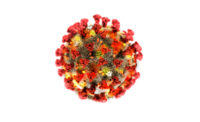Kraton Block Copolymer Granted Section 18 Emergency Exemption by EPA
The EPA exemption will allow Delta Air Lines to use the block copolymer in specific applications in Georgia, Utah, and Minnesota to protect against the SARS-CoV-2 virus.

Kraton Corp. recently announced that the U.S. Environmental Protection Agency (EPA) has approved a public health emergency exemption under Section 18 of the Federal Insecticide, Fungicide and Rodenticide Act (FIFRA) submitted by the Georgia, Utah, and Minnesota Departments of Agriculture for the deployment of BiaXam™ in specific applications. The EPA exemption will allow Delta Air Lines to use BiaXam in specific applications in these states to protect against the SARS-CoV-2 virus.
Kraton reports that BiaXam sulfonated block copolymer is a solid yet transparent material that can provide long-lasting antimicrobial protection on public surfaces. This technology can kill up to 99.999% of the SARS-CoV-2 virus under laboratory conditions, with continued protection for up to 200 days, depending on use, exposure, and cleaning methods. Kraton developed the BiaXam technology as part of its sulfonated polymer product line and is currently seeking regulatory approvals in other jurisdictions, including countries outside of the U.S.
Delta will be the launch customer for BiaXam as the airline continues to innovate on its health and safety commitments. The airline's kiosks and counters in Atlanta, Salt Lake City, and Minneapolis will be the first to feature the product. Delta will look to expand its use to other airports pending further regulatory approval.
"We believe that BiaXam is unique due to both its efficacy, durable and residual properties that distinguish it from other technologies that require a more frequent application or treatment," said Kevin M. Fogarty, Kraton president and CEO. "We are not aware of other available technologies that provide the long-lasting, durable protection that BiaXam can offer. Moreover, while other antimicrobial products are based upon a chemical as the active ingredient, BiaXam is a polymer, and the antimicrobial properties are an inherent feature of the polymer design. We appreciate the EPA and the States of Georgia, Minnesota and Utah for their diligent evaluation of BiaXam's durability and efficacy data. We are eager to continue our work with Delta Air Lines, a global airline leader in safety, innovation, reliability, and customer experience as they work to expand their commitment to passenger safety."
According to Mike Medeiros, Delta's vice president of Global Cleanliness, "Delta's commitment to clean innovation is taking a big step forward today with the introduction of BiaXam as our latest means of delivering on the high standard for disinfection for which we're known. This new technology offers an exciting new layer of protection that will help us maintain and enhance the effectiveness and efficiency of our protocols and build customer confidence both during the pandemic and beyond."
The BiaXam patent-pending technology can be coated on various substrates and surfaces made up of plastic, metal, and glass. It can also be applied as a peel-and-stick film. The efficacy of Kraton's BiaXam technology has been studied by organizations such as Boston University's National Emerging Infectious Diseases Laboratories (NEIDL), North Carolina State University, University of Texas Medical Branch (UTMB) at Galveston, and Syngene International Ltd. The testing performed at the UTMB and Boston University BSL-4 laboratories has demonstrated BiaXam to be effective against SARS-CoV-2.
"We intend to advance the BiaXam technology platform for a several potential applications and seek appropriate regulatory approvals,” said Vijay Mhetar, Ph.D., Kraton's senior vice president and chief technology officer. "Specifically, we are strategically partnering with several renowned hospitals and universities to identify potential opportunities to improve patient safety."
To learn more about BiaXam and other products from Kraton Corp., visit www.kraton.com.
Looking for a reprint of this article?
From high-res PDFs to custom plaques, order your copy today!





